2019 Walter A. Strauss Lecture Series – Proust and the Marx Brothers
November 15th, 2019
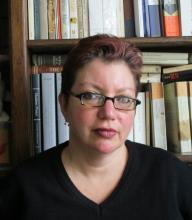
In this series of lecture, Elisabeth Ladenson, Professor of French and Romance Philology at Columbia University, will offer a brief history of the place of the author in literary interpretation, along with two salient cases in which the author’s biography seems to be inseparable from the understanding of their works: Marcel Proust and Colette. This lecture series, in memory of Walter A. Strauss (1923-2008), who was the Elizabeth M. and William C. Treuhaft Professor of Humanities, is generously supported by funds provided by the Paul Wurzburger Endowment.
Graduate Work-in-Progress – A Natural Improvement: Wetlands and Commodification in Nineteenth Century America
Thu, Nov 21 2019, 4:30 PM

Wetlands are often virtually invisible in the historical record right up to the moment that thoughts turn to drainage. They typically appear–swampy, dark, malarial–only when they inhibit movement, pose a threat to human health, or present an obstacle to agriculture. This has created a sense of a fundamental antagonism between humans and wetlands, and of inevitability around attempts to drain them, but this is quite misleading. In this talk, Davis Allen, a PhD candidate in the Department of History, explores the long history of the commodification of American wetlands, and explains how our relationship with wetlands has been shaped by a particular view of natural resources and private property.
Faculty-Work-in-Progress – Kafka’s Monkey and Other Phantoms of Africa
November 28th, 2018
French-Algerian philosopher Seloua Luste Boulbina explores the ways in which psychological, linguistic, and historical knowledge produced during the colonial era continues to shape ideas about migration in the years since independence. In this work in progress, based on several important texts forthcoming in English translation Laura Hengehold, Professor in the Department of Philosophy, explores Luste Boulbina’s reworking of certain ideas from French thinkers of the 1960s in her effort to relocate postcolonial subjectivity with respect to the discipline of philosophy.
Graduate Student Work-in-Progress – Consuming the Past: Food Metaphors in the Intergenerational Food Memoir
January 30th, 2020

The presence of food metaphors in food memoirs might seem so ubiquitous as to be mundane or cliché. However, the food metaphor’s ability to collapse the physical and temporal boundaries between food and familial ancestors allows memoirists to write their families into their own bodies—and into the present—through food. In this talk, Brita Thielen, PhD candidate in the Department of English, analyzes key food metaphors in three recent food memoirs—A Tiger in the Kitchen: A Memoir of Food and Family by Cheryl Lu-Lien Tan (2011), Licking the Spoon: A Memoir of Food, Family and Identity by Candace Walsh (2012), and The Cooking Gene: A Journey Through African American Culinary History in the Old South by Michael W. Twitty (2017)—to demonstrate how food allows these authors to make themselves participants in their family histories rather than simply products of them.
Faculty Work-in-Progress – The Sacrifice of Ibrahim: Faith-Switching Rumors and Forced Conversion in Seventeenth-Century Marseille
February 4th, 2020
Drawn from a larger book project that uses a false rumor about a forced baptism to trace the faint edges of a Jewish woman’s otherwise forgotten life, this talk by Gillian Weiss, Associate Professor in the Department of History, considers the real case of two Muslim girls converted to Catholicism on direct orders from Louis XIV. Christened Marie-Magdeleine and Ursule Marseille at that city’s main cathedral, the daughters of an Algerian galley slave named Ibrahim and his wife Fatima became municipal trophies, conduits for social distinction, subjects of diplomatic dispute and emblems of royal orthodoxy.
Faculty Work-in-Progress – On Helping One’s Neighbor: Religious Ethics, Obligations to Others, and Severe Poverty
February 12th, 2020

For the severely poor, daily life is replete with ongoing and pervasive horror. People who live under conditions of severe poverty are subject to widespread exploitation, chronic malnutrition, and lack of access to adequate shelter, sanitation, and basic preventive healthcare. Consequently, people who live under such conditions are deprived of the necessities need to live minimally decent and autonomous lives. But what sorts of obligations (if any) do affluent people to assist people who are severely poor? In response to critics who claim affluent people either have limited or no obligations to assist the severely poor, Bharat Ranganathan, Beamer-Schneider SAGES Teaching Fellow in Ethics, draws from Christian ethics and moral and political philosophy to argue that affluent people instead have demanding obligations.
Faculty Work-in-Progress: How to Lie About Cleveland Music With Maps
February 25, 2020
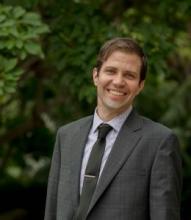
In his talk, George Blake, Virginia and Walter Nord Fellow in the Humanities, surveys different approaches to mapping musical Cleveland. Each map selects what is important from a specific viewpoint, amplifying some sounds, while muting others. Listening for musicians “out of place” challenges us to reflect on what it means to tell the truth about the composition of Cleveland and to remain attentive to language that reproduces inflexible associations between genre, people and place.
Symposium: New Directions for Shakespeare and Psychoanalytic Studies – Opening Plenary by Dominique Scarfone
February 28, 2020
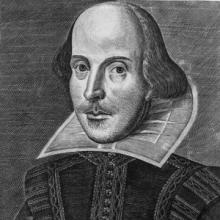
The discipline of Shakespeare studies has always been deeply intertwined with the study of the mind. The founding of psychoanalysis can be dated to Sigmund Freud’s reading of Hamlet in 1897, and psychoanalytic theorists continued to draw examples from Shakespeare as they expanded upon Freud’s initial concepts throughout the century that followed. Likewise, psychoanalytic theory provided the foundation for many of the major works of twentieth-century Shakespearean criticism.
Symposium: New Directions for Shakespeare and Psychoanalytic Studies
February 29th, 2020
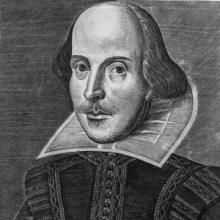
The discipline of Shakespeare studies has always been deeply intertwined with the study of the mind. The founding of psychoanalysis can be dated to Sigmund Freud’s reading of Hamlet in 1897, and psychoanalytic theorists continued to draw examples from Shakespeare as they expanded upon Freud’s initial concepts throughout the century that followed. Likewise, psychoanalytic theory provided the foundation for many of the major works of twentieth-century Shakespearean criticism.
Ovid, Actaeon, and the Truths of Myth
March 16th, 2020
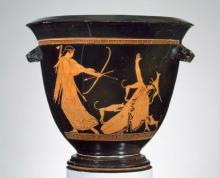
THIS EVENT IS CANCELLED DUE TO CONCERNS ABOUT THE CORONAVIRUS AND COVID-19. Myth has often been used to express truths that are too dangerous to be stated in the open. An example is the myth of Actaeon, the story of the young hunter who is punished for stumbling upon the goddess Diana bathing. This has proved to be one of the most enduring and controversial of the narratives told by Ovid in his epic poem Metamorphoses— controversial for his version emphasized not, as was customary, Actaeon’s intentional violation of the goddess’s private space, but rather his innocence. The same myth was framed in personal terms in Ovid’s later poetry, written in the period of his political exile, as an example of unjust punishment by autocratic powers. In her talk Carole Newlands, Professor of Classics at the University of Colorado, Boulder, will explore the tension between voyeurism and victimhood that runs through the Actaeon myth in literature and the visual arts from Ovid to the present, as artists and writers have continued to engage with the controversy raised by Ovid in his narrative of Actaeon, thus demonstrating the enduring importance of myth in exploring broader political and cultural truths.
- Home
- Events
- Past Events
- 2019-2020

